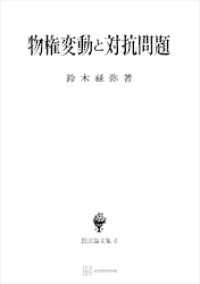Full Description
The literature relating to the learned control of autonomic processes, especially cardiovascular processes demonstrating that the activities of visceral response systems may be modifi ed by operant reinforcement and biofeedback procedures, has grown exponentially. This research seems to show behavioral properties in the cardiovascular system that were previously believed to be exclusive attributes of the somatic response systems; the implications of this for possible therapeutic use have received widespread publicity. Questions remained unanswered-about the nature of "voluntary" control and the conditions necessary for establishing it, the reciprocal effects of conditioned changes in cardiovascular and psychological or behavioral functioning, the use of cardiovascular events to index behavioral states, and the principles and techniques whereby operant conditioning of the cardiovascular system can be clinically applied.
Contents
I: Cardiovascular Function and Measurement; 1: Mechanisms of the Cardiovascular Responses to Environmental Stressors; 2: A Selective Review of Central Neural Pathways Involved in Cardiovascular Control; 3: Psychophysiology of Peripheral Vascular Changes; 4: Indirect Indices of Contractile Force; 5: The Indirect Recording of Human Blood Pressure; 6: Techniques for Long-Term Direct Measurements of Cardiovascular Variables; II: Cardiovascular Function — Experimental Studies; 7: Analysis of the Final Common Path for Heart Rate Conditioning; 8: The Cardiac-Somatic Interaction; 9: Comparative Psychophysiology of the Electrodermal and Cardiac Control Systems; 10: The Relationship Between Learned and Unlearned Cardiovascular Responses; 11: Sympathetic and Parasympathetic Activity During Behavioral Hypertension in the Squirrel Monkey; III: Animal Operant Conditioning; 12: Operant Autonomic Conditioning: The Analysis of Response Mechanisms; 13: Respiratory and Somatomotor Factors Associated with Operant Conditioning of Cardiovascular Responses in Curarized Rats; 14: Some Critical Methodological Variables Involved in Visceral Learning; 15: The Learning of Autonomie Responses by Curarized Animals; 16: Visceral Learning: Recent Difficulties with Curarized Rats and Significant Problems for Human Research; 17: Comparative Studies of Operant Electrodermal and Heart Rate Conditioning in Curarized Rats; 18: Some Problems in the Use of Neuromuscular Blockade; IV: Human Operant Conditioning; 19: A General Model of Voluntary Control Applied to the Phenomena of Learned Cardiovascular Change; 20: Learned Control of Human Heart Rate in a Computer Directed Environment; 21: Toward a Theory of Voluntary Control of Response Patterns in the Cardiovascular System; 22: Opérant-Feedback Control of Human Blood Pressure: Some Clinical Issues; 23: Application of Operant Conditioning Techniques to the Control of the Cardiac Arrhythmias; V: Heart Rate — Attentional and Motivational Processes; 24: Cardiac Conditioning and Orienting in the Infant; 25: The Motivational Significance of Heart Rate; 26: Studies of Heart Rate and Other Bodily Processes in Sensorimotor Behavior; Summary







